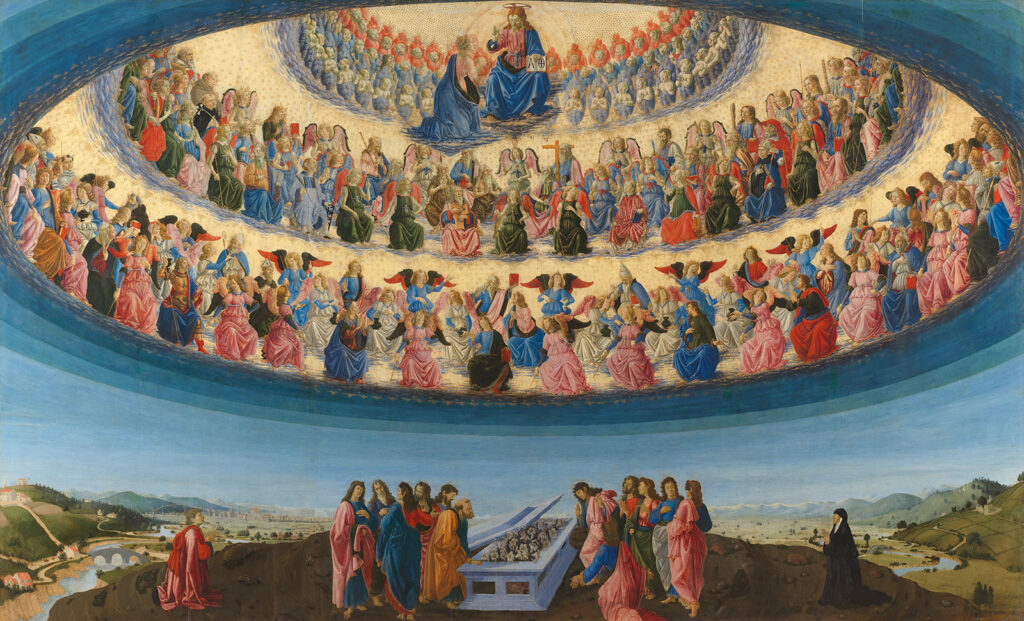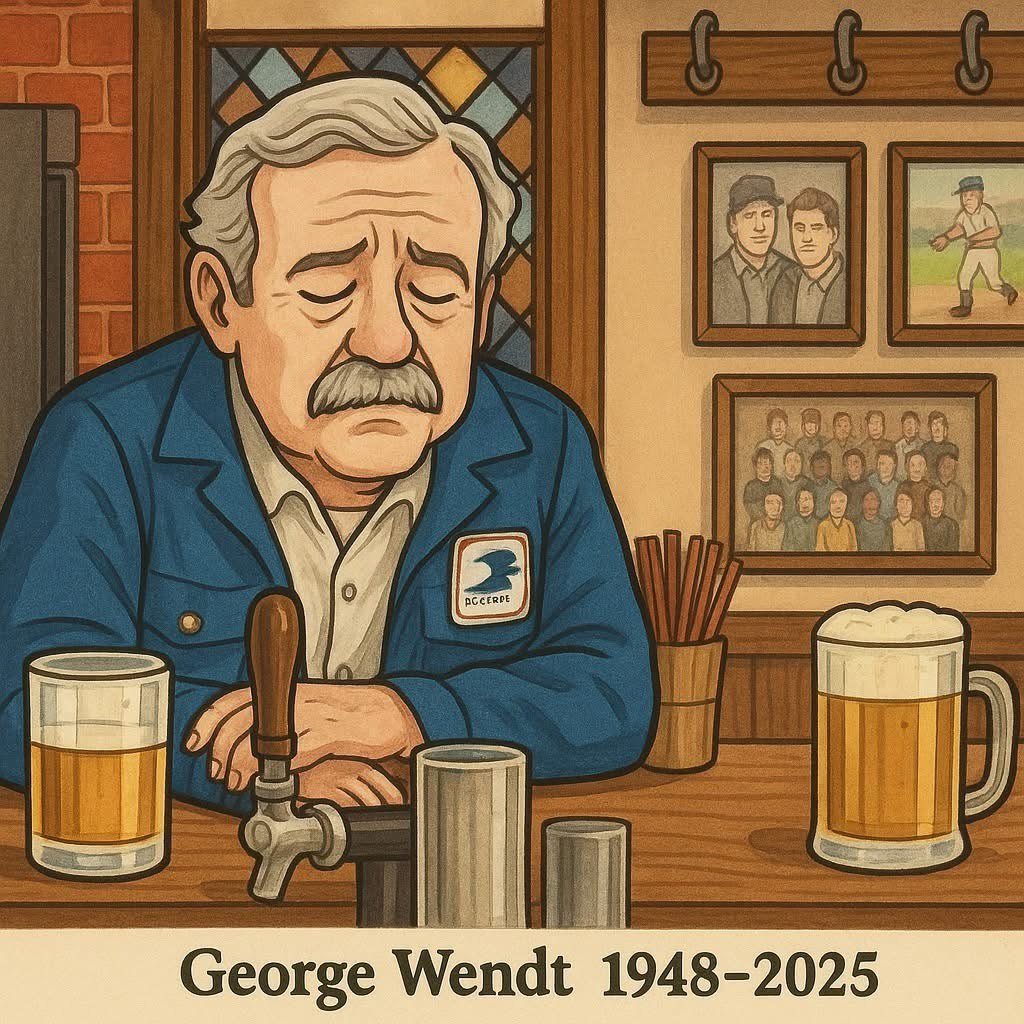
From Barstool to Beatific Vision: Longing for a Place Where We Are All Known

George Wendt, who played the fictional character "Norm" in the long running sitcom "Cheers" has died. The show and his character reflected a basic human need to know and be known.
Just a few days ago, on May 20, 2025, actor George Wendt passed away. For many of us who grew up watching Cheers,or later discovered it through reruns, George Wendt was simply “Norm.” He was the guy on the barstool with dry wit, stoicism, and a steady presence that never demanded attention yet somehow became the soul of the show. You felt like you knew him, even if he barely said a word. And somehow, it felt like he knew you too.
It is difficult not to notice the timing. The Cheers series finale aired on May 20, 1993. Now, thirty-two years later to the day, George Wendt has passed away. He was the man who brought Norm to life, a character who became a fixture in one of television’s most beloved sitcoms. That final episode marked the end of a cultural era. And now we say a different kind of goodbye—not to a fictional character but to the man himself.
Although I do not presume to know where a soul ultimately rests, for that mystery belongs to God alone, the passing of someone who brought so much laughter into our lives, often unknowingly and from the comfort of our homes, should prompt more than mourning. It should lead us to pause and reflect on life, death, and what may lie beyond.
Unquestionably, there is something hauntingly beautiful about that familiar refrain, “Norm!” shouted out every time he entered the bar. It was highly comical but also deeply human. Do we not all long for that kind of welcome? For a place where our presence matters, where we do not have to explain ourselves, where we are simply received?

Years ago, when my daughter was still in her preteen years, I introduced her to the Cheers series. She quickly caught on to the show’s trademark greeting and began playfully adapting it with the name of one of my close friends. Fittingly, said friend frequented his local bar—which was conveniently located across the street from his old house—almost as often as Norm did Cheers. We couldn’t help but notice the similarities. He felt simultaneously amused and not amused, while the rest of us shared a good laugh. This is precisely where the fictional meets the mundanity of our everyday lives. What is revealed is that underneath the mask of laughter lies the deep reality of human longing to be known, heard, and loved.
The Scriptures describe Heaven not in great, intricate detail but with profound clarity about its essence. Heaven is the fulfillment of a personal and eternal relationship with God (John 17:3; Revelation 21:3). It is not a place where we float on clouds or where cherub angels strum harps. It is our raison d’être (Romans 8:29–30; Philippians 3:20–21). It is a place where we come face-to-face with the source of all truth, beauty, and love (James 1:17; Psalm 27:4) and where we are not only known by name but known in the most intimate and perfect way possible (1 Corinthians 13:12; 1 John 3:2).
Earlier this year, actor Jeremy Renner recounted a near-death experience from 2023 following his serious snowplow accident. He described a peace that overwhelmed him and a sense of being completely embraced and loved in a way that was almost incomprehensible within the limits of earthly existence. Even though I do not doubt his sincerity, the veracity of his experience is not relevant; rather, it serves as a reminder that the boundary between this life and the next may be thinner than we imagine and that our deep longing for something beyond this world is not misplaced. In the Christian tradition, this longing finds its ultimate fulfillment in the Beatific Vision—the direct and unmediated encounter with the living God, in whom we are fully known, fully loved, and eternally at rest.

I have written many times about the loss of artists, intellectuals, and public figures who left a lasting imprint on our collective imagination, as well as friends and relatives who left a more personal mark on my own life. George Wendt was not flashy. He was never at the center of scandal or fame. He was not an intellectual, and I do not know whether he held any particular faith. In many ways, he was the ordinary man. But perhaps that is precisely what made him so loveable and relatable. In his simplicity, he pointed to something more enduring. The character of Norm reminded us that there is something quietly sacred about humility and constancy. In simply showing up, in being present without fanfare, he reflected a truth that often escapes our attention: that the ordinary, when lived well, can gesture toward the eternal.
Cheers may have been a fictional television show, but it portrayed something deeply real. It spoke to the beauty of friendship, the strength of loyalty, and the quiet dignity of broken people trying, however imperfectly, to carry one another through life. In it, our longing for community, familiarity, and belonging was evident. This longing runs far deeper than psychology or brain chemistry. It reflects a spiritual yearning that touches the very essence of our being. It embodies a desire for a place where we are known and loved unconditionally. These mundane realities point to an ultramundane vision and, as signs of a deeper eschatological realm, namely, the longing for eternal communion with God.
As I further ponder George Wendt’s death, I think about how many people never knew him personally but felt, somehow, that he was part of their lives. This, to me, speaks of a longing we all carry. Even if it’s subtle, it guides us toward a final resting place. This is a place where love is unearned, non-transactional, yet complete, where communion is indissoluble, and, if grace permits, one that will guide us toward the infinite and eternal heart of God.
May George rest in peace. I thank him for the quiet joy and laughter he brought to so many and the reminder that even in a sitcom, something profound about eternity can shine through.

